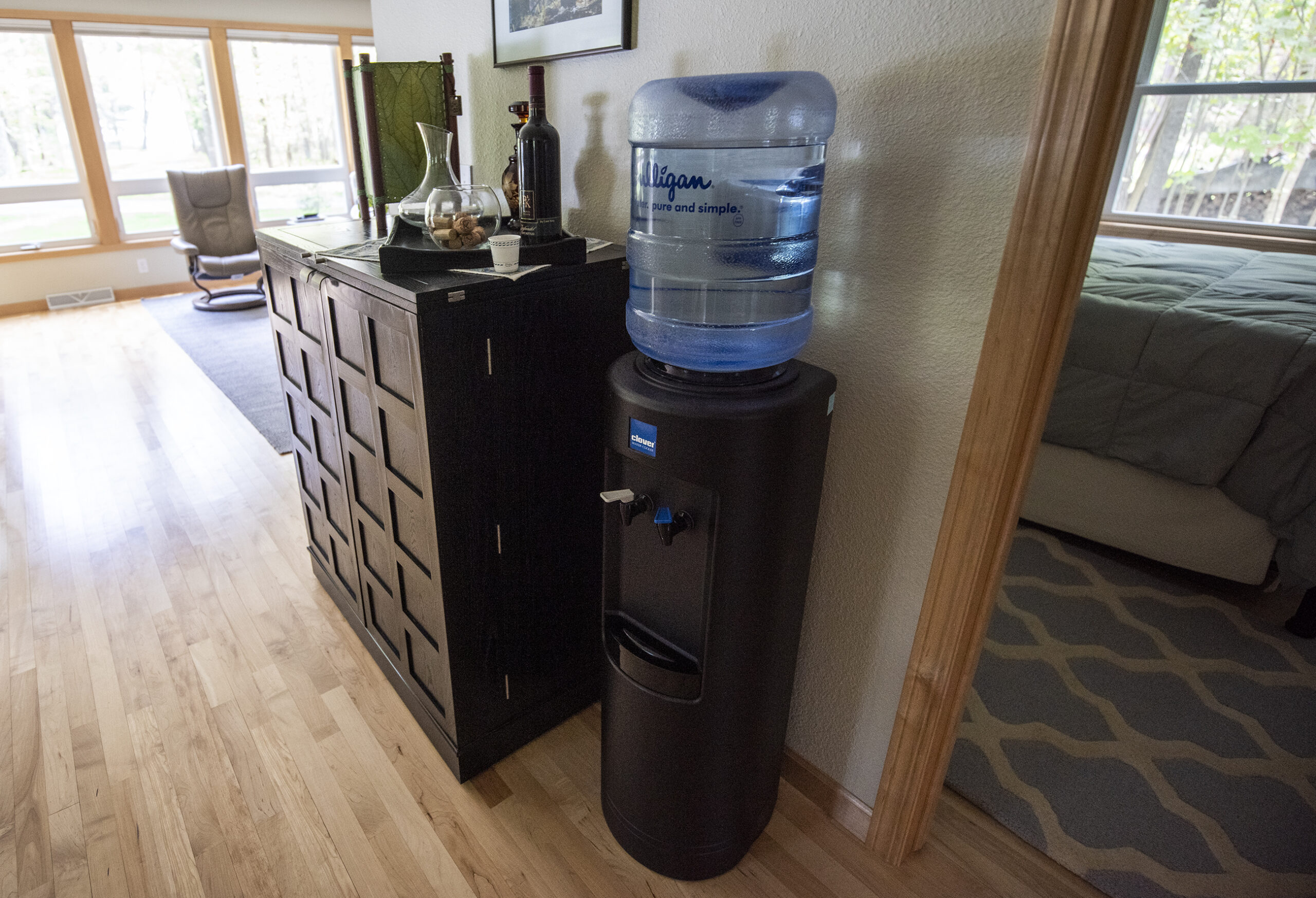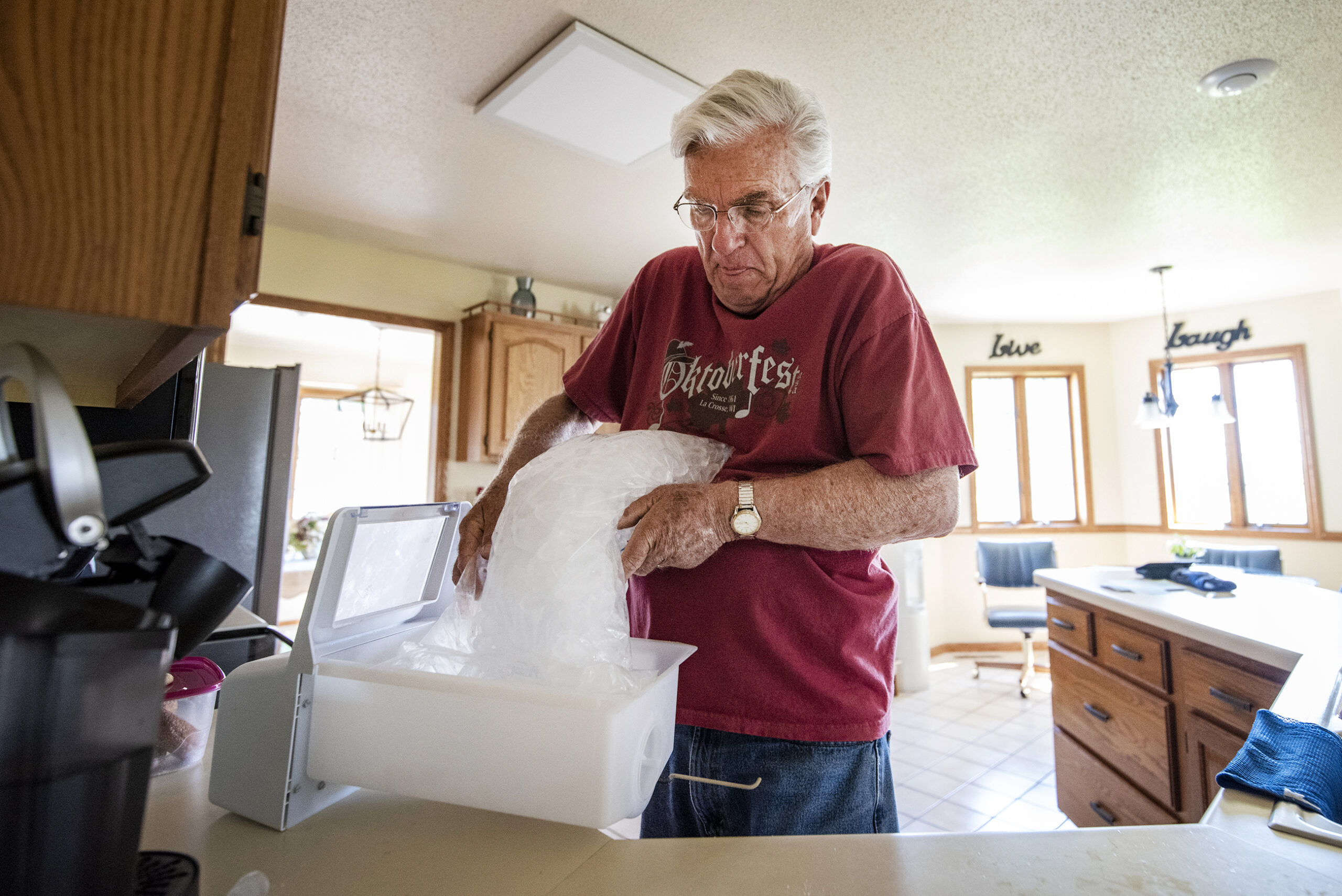Leaders of PFAS-polluted communities in Wisconsin say they’re pleased the U.S. Environmental Protection Agency is listing PFAS as hazardous substances under the federal Superfund law.
On Friday, the EPA proposed designating the chemicals that have been found in firefighting foam and everyday products like non-stick cookware as hazardous substances through federal rulemaking. The move is anticipated to speed up efforts to clean up contamination from the toxic forever chemicals. The listing would allow the EPA to hold polluters accountable for contamination under the law.
PFAS, or perfluoroalkyl and polyfluoroalkyl substances, have been used by industry since the 1940s. They don’t break down easily in the environment. Multiple studies have linked the chemicals to serious health effects that include increased risk of kidney and testicular cancers, thyroid disease and fertility issues. They have also been tied to reduced response to vaccines.
Stay informed on the latest news
Sign up for WPR’s email newsletter.
“This has been something that they’ve been talking about and those of us who are living in this nightmare have been holding on to as hope,” said Cindy Boyle, chair of the Town of Peshtigo. “This is action around that promise, so I’m grateful for that.”

Boyle is among nearly 140 residents who rely on bottled water in the northeastern Wisconsin community due to PFAS contamination of private wells tied to Tyco Fire Products’ fire training facility in Marinette.
In March, the town filed a petition with the EPA requesting a preliminary review of the suspected release of hazardous substances under the Superfund law. That law is otherwise known as the Comprehensive Environmental Response, Compensation, and Liability Act or CERCLA.
Boyle said they made the request after the policy-setting board for the Wisconsin Department of Natural Resources failed to pass groundwater standards in February. Now that the chemicals are being listed, the town could benefit. An EPA spokesperson said the agency has agreed to conduct the preliminary assessment within one year of the petition’s submission.
“I think it’d be significant in addressing our community’s contamination, because if approved, it could simultaneously address our desperate need for remediation while also holding our responsible party accountable,” said Boyle.
Tyco and Johnson Controls International have been investigating PFAS contamination around its fire training facility since 2017. A Johnson Controls spokesperson said the company is still reviewing the EPA’s decision to designate the chemicals as hazardous substances.
The company has said they’ve taken steps to clean up pollution amid efforts to address PFAS at the state and federal level.
“Hands down, we are furthest along in the state of Wisconsin in taking care of our part of what is a nearly universal challenge with PFAS. Nobody has had to chase us to do any of that,” Katie McGinty, chief sustainability officer for Johnson Controls, told Wisconsin Public Radio in March.
In 2019, the DNR referred Tyco and Johnson Controls to the Wisconsin Department of Justice for failing to report any release of PFAS when contamination was first discovered in 2013. In March, Wisconsin Attorney General Josh Kaul also filed a lawsuit against Tyco and Johnson Controls for violating the state’s spills law. The company has said they thought pollution was confined to the site of their facility.
In July, Tyco was also named in a lawsuit filed by Gov. Tony Evers’ administration against 18 chemical companies over their use of PFAS that has contaminated more than 100 sites across the state.

The Town of Campbell on French Island near La Crosse has been dealing with PFAS pollution of private wells that’s suspected to stem from use of firefighting foam at the La Crosse Regional Airport. Testing of 553 wells has shown around 30 percent had PFAS levels concerning to state health officials.
Town Supervisor Lee Donahue said the EPA’s announcement Friday is a great first step.
“There’s still a lot of work that needs to be done to clean up this toxic mess that has been left behind by manufacturers that, quite frankly, have not been held to task,” said Donahue.
The DNR said in a statement Friday that the EPA’s proposed listing reinforces the health and environmental risks tied to PFAS.
“The Wisconsin Department of Natural Resources will continue to coordinate with other agencies and local communities to assess the impact of EPA’s actions,” said Sarah Hoye, a DNR spokesperson. “Wisconsin has a rich history of working with communities to clean up contamination. This designation would give Wisconsin access to additional tools and resources to address PFAS contamination.”
If successful, environmental advocates say the listing could be an important backstop in Wisconsin as Wisconsin Manufacturers and Commerce has sued the DNR over its authority to address the chemicals.
In April, a Waukesha County judge ruled the DNR must list PFAS as hazardous substances through rulemaking before regulators can require businesses to clean up contamination. That ruling was put on hold in June. Environmental advocates say that decision could remove the DNR’s ability to protect public health and the environment under the state’s spills law if it’s allowed to stand.
“Even if the state is not able to continue regulating here, there will at least be some assistance from the federal government,” said Rob Lee, staff attorney for Midwest Environmental Advocates. “There’s a procedure there, too (under CERCLA), and so it may not be as robust as the state could be. But I think folks may be able to rest a little easier knowing that there’s something else in the works.”
Wisconsin Manufacturers and Commerce declined to comment Friday on the EPA’s proposed designation of the chemicals. They, along with the American Chemistry Council, had urged the state to wait for federal standards to regulate PFAS in drinking water rather than passing state regulations.
In a statement Friday, the council representing major chemical companies said the agency’s proposal is “expensive, ineffective, and unworkable” as a way to clean up contamination.
“Now is not the time to propose a rule that will be a significant cost on the treasuries of state and local governments, while the state of science is under development,” the council wrote.
They also said listing PFAS as hazardous substances would create delays in cleaning up pollution and prevent federal regulators, health officials and drinking water systems from dealing with “more pressing” issues. The council said that includes delays in state and federal cleanup programs.
The group said the proposed listing of PFAS of hazardous substances would also create further uncertainty for businesses, farmers and all levels of government without national standards for the chemicals.
The EPA is set to propose national drinking water standards for PFAS this fall.
Wisconsin Public Radio, © Copyright 2025, Board of Regents of the University of Wisconsin System and Wisconsin Educational Communications Board.


